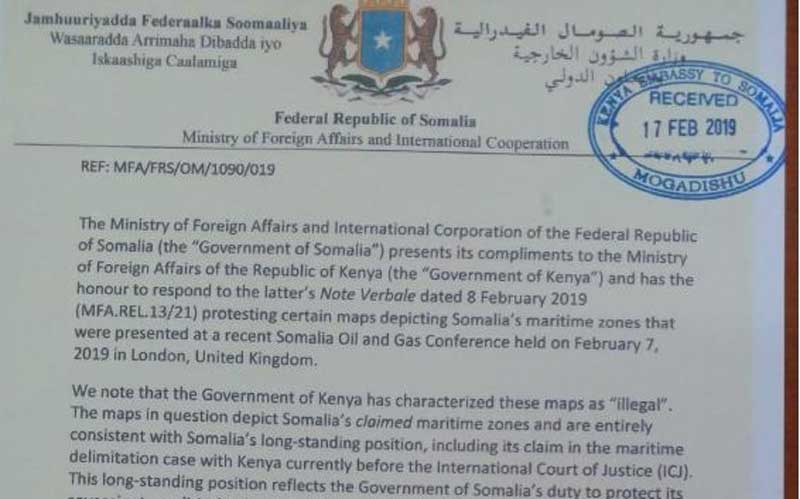×
The Standard e-Paper
Home To Bold Columnists

A border dispute between Kenya and Somalia has finally come to a head. Dating back to 2014 when both countries laid claim to an oil and gas island in the Indian Ocean along their border, Somalia lodged a complaint with the International Court of Justice (ICJ) in 2014.